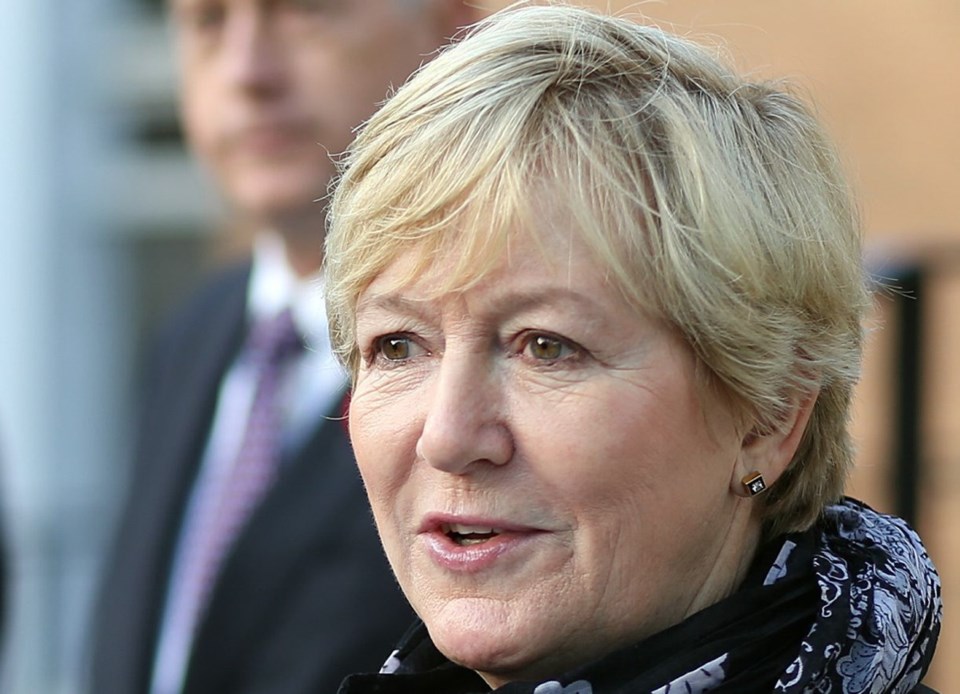 The Criminal Justice Branch rolled out some new guidelines for prosecutors about assisted dying this week, to address a “lack of clarity” about health-care workers’ involvement in such cases, compared to doctors.
The Criminal Justice Branch rolled out some new guidelines for prosecutors about assisted dying this week, to address a “lack of clarity” about health-care workers’ involvement in such cases, compared to doctors.
But one thing seems clear, with or without the guidelines. It’s been a historic week for a social issue that’s going to make for a profound change for all Canadians, once the law and the related protocols take full hold. Decades of adroit political and legal manoeuvring led to the Supreme Court of Canada decision last year that did away with the traditional prohibitions.
Now it feels like the Berlin Wall coming down. There is a national scramble to address the ruling that kicked into effect this week. It took hold because the required legislation to recognize the ruling has not yet passed Parliament.
So the old strictures against assisting a patient’s death are void in the following scenario: When a competent adult clearly consents, and has a “grievous and irremediable medical condition that causes enduring suffering that is intolerable to the individual.”
With the federal legislation not yet enacted, that became law this week by default. At least one Vancouver doctor acted on it Tuesday, administering an IV to end the life of a patient. The Criminal Justice Branch’s new guidelines make it clear that all health-care professionals who are involved in such cases are covered and protected by the new ruling, not just doctors:
“The branch recognizes that a physician-assisted death may require the involvement of various health-care professionals, including nurses and pharmacists.
“When charges are assessed on a case by case basis, the conditions of physician-assisted death set out in Carter [the Supreme Court decision] should be applied to physicians and other health-care professionals involved in carrying out, or providing information about, a physician-assisted death.”
The policy is in anticipation of police filing charges, which looks to be a long-shot possibility at this point, given all the developments.
But better to have all the bases covered. The bottom line as far as the decision to press charges is: When the conditions set out by the court are met, there is no substantial likelihood of a conviction for charges against doctors or health-care professionals under the old section of the Criminal Code barring assisting in a suicide.
The other question asked when deciding to lay charges is whether it is in the public interest. The new guidelines say the answer is no. Justice Minister Suzanne Anton said the guidelines, along with the College of Physicians and Surgeons’ standards and related health legislation, enable the conditions to allow for physician-assisted dying in B.C.
She and Health Minister Terry Lake had released a protocol for assisted-death cases this week, but it wasn’t specific about the involvement of health professionals who weren’t doctors. How long the Criminal Justice Branch policy, and the provincial protocol itself, will be in effect is unclear. The federal bill written to recognize the historic judgment is considered more restrictive than the judgment itself. It would supersede the provincial regulations. But it is hung up in the Senate, where amendments are being introduced to make it more permissive.
That unprecedented showdown between the House of Commons and the Senate will play out next week, but it’s a B.C. issue. The case that drove the issue involves two women from B.C., as was the predecessor case of Sue Rodriguez. A number of advocates are from B.C. Federal Justice Minister Jody Wilson-Raybould, who introduced the bill, is from B.C., as is one of the leading critics, Victoria MP Murray Rankin.
The B.C. legislature’s involvement in the issue is peripheral. But there was a significant development last fall. A bipartisan committee studying end-of-life issues such as palliative care was blitzed with hundreds of submissions on one particular aspect — assisted death. It reported out with some recommendations on the issue, but Liberal MLA Marc Dalton objected to the recommendations.
Unusually, the report was tabled in the legislature, but not formally adopted. The November move was made to buy some time.
But as this week shows, the time for dithering has run out.



